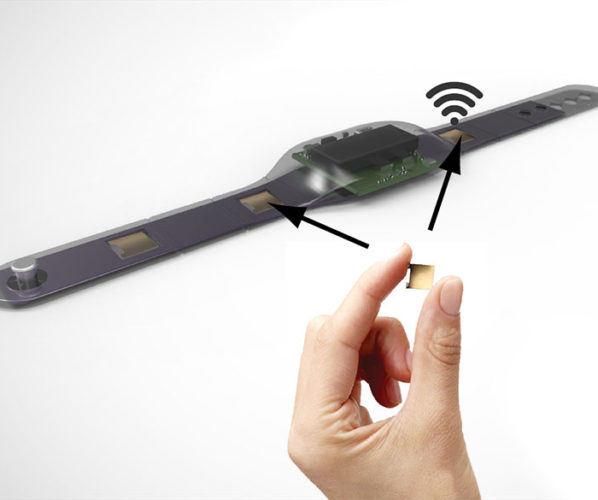Success Story
“Novasentis has had an extremely strong launching pad in Penn State. The University is building an environment of support that will only strengthen opportunities for future startups to come.”
Francois Jeanneau
CEO, Novasentis
Novasentis Takes Off with Market-Leading Haptic Technology
With a market-leading technology, and backed by strong industry partnerships, Novasentis is revolutionizing the market for haptics in smart watches, AR/VR and gaming controllers.
In 2006, an exciting new technology was developing out of Penn State: a patented electro‑mechanical polymer, known as EMP, engineered by Dr. Qiming Zhang, distinguished professor of electrical engineering and materials science engineering. The polymer is clear, ultra‑thin, and flexible, which makes it ideal for small, portable, and wearable personal electronic devices and gaming controllers.
And it is ideal for a broader technology called “haptics,” the tactile sensation of vibration touching the skin, as in a notification for a cell phone call.
“There’s nothing like this material in the world,” said Rick Ducharme, Vice President of Engineering. “The performance beats any incumbent technology, including ones released in the most popular smart watches.”
Then called Strategic Polymer Sciences, Zhang and the company founders spent its early years exploring a number of applications for their sensory technology – including medicine, automotive and computers. And by working at Penn State with Dr. Zhang, they had access to state-of-the-art labs.
The company eventually changed its name to Novasentis, and underwent multiple successful funding rounds from 2009 to 2014, picking up investment from Chengwei Capital, Samsung Ventures, General Motors Ventures, and Penn State’s Research Foundation.
In 2015, the company re-capitalized with a new management team and focused on smart watches, AR/VR devices and gaming controllers. In addition, Novasentis also partnered with manufacturers KEMET, ARMOR, and Arkema, which enables the company to solely focus on R&D, marketing and sales – while its partners’ state of the art factories able to prepare for mass production of its innovative technology.
It’s clear that continuing to have R&D in State College was the right decision. “We have Innovation Park, the Ben Franklin Technology Partners, the CBICC, and a large number of technology transfer companies getting their start here,” says Ducharme. “Intellectually, Penn State has the theoretical and technical knowledge and skill in materials and in sound and vibration. It’s considered a vibrations and materials ‘hot spot’ in the world.”
CEO Francois Jeanneau agrees, “Novasentis has had an extremely strong launching pad in Penn State. The University is building an environment of support that will only strengthen opportunities for future startups to come.”
– Adapted from a story by Eileen Wise






